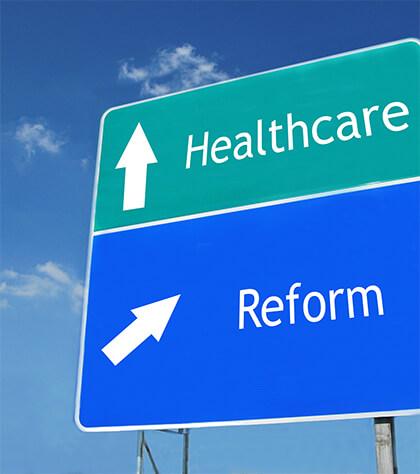Trumpcare and Hospitals: How Medicaid Changes Could Affect Your Organization

There is a lot going on in the area of healthcare reform right now. The proposed changes, commonly called Trumpcare, can upend the American healthcare landscape as we know it today. As with any changes, not all have positive outcomes. Proposed changes to Medicaid and the possibility of increased numbers of uninsured individuals require organizations to think proactively about possible reform effects.
According to Medicaid.gov, 69 million people in America are covered by Medicaid. This state and federally funded plan is vital to providing healthcare insurance to low income and disabled Americans. New healthcare proposals may decrease expansion and funding to this program potentially leaving many without insurance.
Emergency Room Burden
The passage of the Affordable Care Act allowed many American's to obtain health care insurance. Having insurance meant that many of these individuals now had access to preventive and regular healthcare services. This shift amongst the newly insured diverted some of the care burden from the nation's Emergency Rooms back to Primary Care providers. Possible reductions in Medicaid funding combined with existing Legislation like the Emergency Medical Treatment and Active Labor Act (EMTALA), may shift the burden back on the nation's ER's. EMTALA requires that Emergency Rooms provide medical attention to those seeking it regardless of one's insurance status. This fact makes ER's a much utilized healthcare option for the uninsured seeking care. According to the National Hospital Ambulatory Medical Care Survey, 45% of ER visits are made by patients on Medicaid and the uninsured. This number may increase as more patients lose access to healthcare insurance and Medicaid funding decreases.
Staffing Shortages
Staffing shortages in today's Emergency Rooms is a real problem. These shortages have contributed to the D+ rating America's Emergency Rooms have received(1). Emergency healthcare personnel shortages, most notably on-call specialty Physicians, are creating tough challenges for organizations trying to provide services. Specialists like ENT's, Orthopedists, Plastic Surgeons and Psychiatrists are an essential component of a fully functioning ER. As the number of participating, on-call specialty Physicians decreases, so does quality and access to care.
Uncompensated Care
An increase in the number of uninsured patients seeking care can directly impact an organization's bottom line. The National Bureau of Economic Research found that each uninsured patient costs a hospital $900 annually in uncompensated care. Uninsured individuals also present a significant financial burden to organizations because they lack regular and preventive care. This lack of care frequently increases their morbidity levels and severity of pathology. This means that by the time they present for care, their medical conditions are often advanced and require a more complex and expensive level of care.
References:
"Medicaid Overview". Accessed 3/8/17.
Garthwaite, C, et al. Hospitals as Insurers of Last Resort". The National Bureau of Economic Research. Nber.org. Accessed 3/8/17.
National Hospital Ambulatory Medical Care Survey 2013. Emergency Department Summary Accessed 3/10/17.
(1) American College of Emergency Physicians. National Report Card 2014. Accessed 3/10/2017.